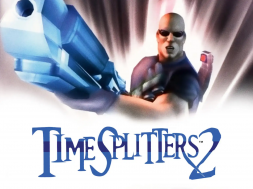

Some of you may have noticed that there was no High Score column last week. As much as I’d like to blame it on my thriving career and hectic social life the truth is our review copy of Assassins Creed IV: Black Flag was very late to arrive and, as I discussed in my review, it is a ridiculously big game. Thus, Ed Kenway kept me far too busy to put pen to paper and talk about music last week. Many apologies!
Spending so much time with Black Flag meant I became very familiar with its soundtrack, which I found somewhat underwhelming. It wasn’t bad, it just wasn’t great, which is all the more disappointing when you consider just how brilliant the music in the series has been up to now. Rather than whine about it though, I felt my new-found-free-time would be better spent talking about some of the exceptional music Assassins Creed has given us up to now. So without further adieu, let’s do just that!
‘It is a good life we lead, brother. May it never change’, Ezio’s brother declares with brazen stupidity at the start of Assassins Creed II and while he and Ezio gaze into the stars, misty-eyed with excitement for the future, all we, the player, can see is a big neon countdown appear over their heads that reads ‘INEVITABLE TRAGEDY IN 10, 9, 8…etc.’. This piece, Ezio’s Family encapsulates everything about the tragedy that follows – which despite my attempts at humor is anything but hilarious – and while most of the score is subtle and generative, i.e: reacting to player activity, it’s tracks like this that bring the true sadness of Ezio’s story to light. Almost minimalist in its melodic content, repeating a simple four note motif, layered with vocal harmonies and countermelodies. Some subtle percussion and classical guitar drive the piece alongside a string section constantly in flux between sweeping, sorrowful legato runs and anxious, angry staccato accompaniments. There’s also some roaring electric guitar thrown in near the end for good measure.
The music for the first two games was subtle in all the right ways; designed to be haunting and reflective, but flexible enough to change and adapt to player activity easily. Revelations was a different story altogether. Kyd was joined on composition duties by film composer Lorne Balfe who brought to the table a filmic grandeur that the series hadn’t had (or needed) up to now. The main theme for Revelations begins with one of those trademark Jesper Kyd vocal motif’s designed to raise every hair on your body and wanders into an electronica-infused middle section before bursting into a gushing, romantic choral melody with epic strings, booming timpani and declamatory horns. A fittingly grand score to the end of the Ezio trilogy.
Jesper Kyd was curiously absent from the credits for Assassins Creed III, but if there were any doubts about Balfe’s ability to carry the torch, they were well and truly dashed seconds into the game itself. This opening number sets the tone and lets us know that Balfe is firing on all cylinders in full on orchestral-bombast mode. The melody is introduced quietly, teasingly, before that percussion drops like a goddamn tomahawk. Thunderous, tribal drums are augmented by electronic production techniques – delay, reverb, distortion etc. – and refuse to let up on the urgency, providing a pulse that drives the piece all the way to it’s conclusion where the main melody returns alongside antiphonal horns determined to make themselves heard through the chaos. III might not have been everyone’s cup of tea, but its score was breathtaking none the less.
One of the more tragic stories in the Assassins Creed saga is one that most people might not even be completely aware of. Clay Kaczmarek, known mostly as Subject 16, is an absolutely integral figure in the first 4 games of the series but the heartbreaking truth of his story was relegated to The Lost Archive, a DLC pack for Revelations. There was so much more to his story than we’d ever known and so much more to Clay himself than we’d ever realized. This simple, unassuming piano piece falls from the sky just as The Lost Archive delivers its emotional sucker punch and remains a suitably morose theme for Subject 16.
While I’m not a fan of Brian Tyler (composer on Black Flag), he’s definitely got talent and if Ubisoft decide to keep him on I do believe he has the ability to reach the heights of his predecessors. For now, Black Flag is the exception to the rule that the music of Assassins Creed is generally, exceptional.










